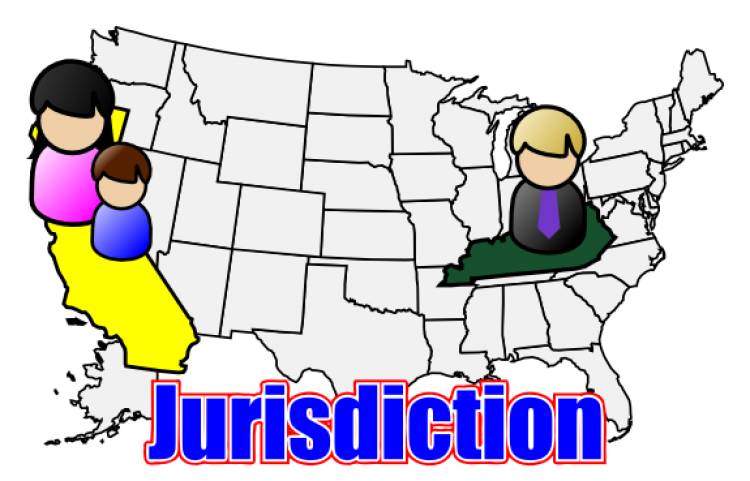What do you understand by Suits of Civil Nature? and What is the Jurisdiction of Civil Courts?

What do you understand by Suits of Civil Nature?
Civil cases involve a conflict between people or institutions, generally over money. A civil suit begins when a legal person claims that he has been harmed by the actions of another person or business and asks the court for relief by filing a “complaint”
Similarly, the High Court of two different states, say Delhi, and Punjab may have similar powers in their respective states but are divided on the basis of area. Cases pertaining to Delhi will lie before Delhi High court and cases pertaining to Punjab will lie before Punjab High Court.
How Is Territory Decided? The following suits are considered suits of Civil nature -
(a) The suit relating to rights and property
(b) The suit relating to the temple
(c) The suits relating to compensation for Civil wrong and contract example – wrongful prosecution
(d) Suits for Specific performance under the Specific Relief Act
(e) Suits relating to common law example voting rights, right to use of High Way
(f) Suits relating to worship
(g) The right relating to burying of the dead body
(h) The right to religious processions
(i) The suits relating to the rights of any elected office bearer
(j) Suits relating to divorce or restitution of conjugal rights
(k) Suits relating to the enforcement of the rights of a member of any club
(l) Suits relating to any right arisen under any contract
(m) Suits relating to accounts
(n) Suit for Contribution
(o) Suit for partnership
(p) Suit relating to any benefit from any office of religious Nature
(q) Suits relating to the customary right of privacy
(r) Suits relating to caste or suspension from caste property
Apart from these, the following suits have not been considered as suits of Civil Nature -
(1) Suits in which the question relating to caste is involved
(2) Suits relating to the maintenance of dignity and honor
(3) Suits relating to voluntary payments not based on any contract or perpetual right
(4) Any suit which is expressed barred by any act
(5) Any suit relating to the political question
(6) Any suit against public policy
What is the Jurisdiction of Civil Courts?
The term “jurisdiction” has not been defined in the code. The word (jurisdiction) is derived from Latin terms “juris” and “dicto” which means “I speak by the law”.
The District Court or Additional District court exercises jurisdiction both on the original and appellate side in civil and criminal matters arising in the District. The territorial and pecuniary jurisdiction in civil matters is usually set in concerned state enactments on the subject of civil courts. On the criminal side, jurisdiction is almost exclusively derived from the code of criminal procedure.
Under Section 9 of CPC provisions relating to the jurisdiction of Civil Courts are laid down.
Jurisdiction of civil courts can be divided into two bases.
• Pecuniary/Monetary
• Territorial / Area Wise Classification
Pecuniary/Monetary Jurisdiction
Pecuniary jurisdiction of the court divides the court on a vertical basis.
At present the pecuniary jurisdiction of the Delhi courts is as follows:
• Suits amounting to Rs.1 - Rs.20, 00,000 lies before district courts.
• Suits over and above Rs. 20,00,000/- lie before High Courts.
It is very important to note that the amount of pecuniary jurisdiction is different for all High Courts. This limit is decided by respective High Court Rules.
In many states, High court has no pecuniary jurisdiction. All civil suits go before District Courts, and only appeal lies before High Court.
Territorial Jurisdiction:
Territorial Jurisdiction divides the courts on a horizontal basis.
For example in Delhi, there are three District level courts, viz. Patiala House, Tis Hazari, and Karakardooma. All these courts have nearly the same powers. However, being on the same horizontal line, these courts are divided territory wise, i.e. area wise. Again, for example, cases pertaining to South Delhi, New Delhi, and West Delhi will lie before Patiala House, and North Delhi cases will lie before Tis Hazari, and cases pertaining to East Delhi will lie before Karakardooma(Delhi).
High Court:
In Case Of Immovable Property:
If the suit is with regard to recovery, rent, partition, sale, redemption, determination of right of immovable property, it shall be instituted in the court within the local limits of whose jurisdiction the property is situated.
Immovable Property Situated Within The Jurisdiction of Different Courts: In such a case the suit may be instituted in any court within the local limits of whose jurisdiction any portion of the property is situated












